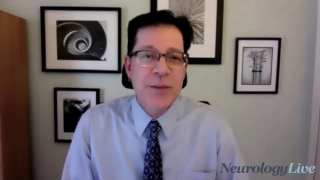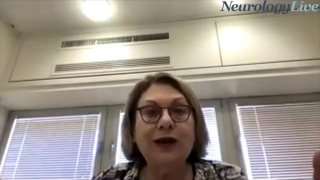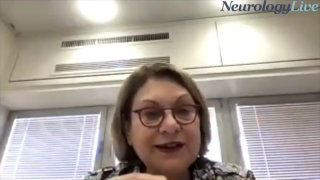
Dementia and Alzheimer Disease
Latest News

Latest Videos

CME Content
More News

The founding executive director of the Alzheimer’s Drug Discovery Foundation commented on the potential to detect patients at-risk for Alzheimer disease at an earlier age. [WATCH TIME: 4 minutes]

In addition to improving constipation in patients with Parkinson disease, ENT-01 also helped improve Mini-Mental State Examination scores, an exploratory measure of cognition.

Take 5 minutes to catch up on NeurologyLive®'s highlights from the week ending January 28, 2022.
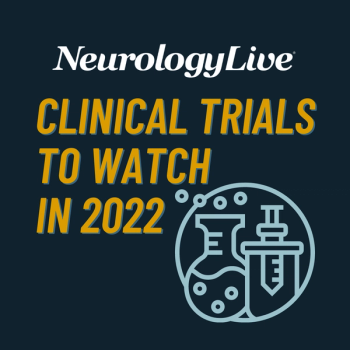
Take a look at 5 of the most-anticipated clinical trial data readouts expected in 2022 that neurology health care professionals should keep their eyes on.
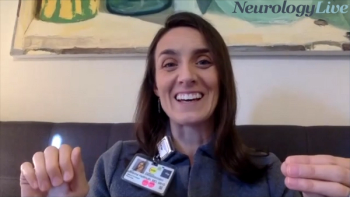
The cognitive neurologist at the University of California San Francisco discussed whether Alzheimer disease is a realistic fear for patients who’ve contracted COVID-19. [WATCH TIME: 5 minutes]

The light intervention was found to reduce awakening time at night, delay sleep offset, and advance sleep onset in a small patient population with dementia.

The founding executive director of the Alzheimer’s Drug Discovery Foundation spoke on the potential of drugs in the neuroprotection class for treatment of patients with AD. [WATCH TIME: 5 minutes]

Eighteen percent of the Alzheimer disease treatment’s study participants are anticipated to be Black/African American and Latinx, according to an announcement from Biogen and Eisai.
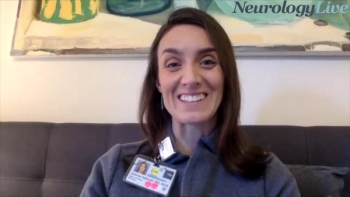
The cognitive neurologist at the University of California, San Francisco discussed the complexities in characterizing milder cognitive disorders and the need for more tailored assessments for these patients. [WATCH TIME: 8 minutes]

The founding executive director of the Alzheimer’s Drug Discovery Foundation spoke on the data and developments he is looking forward to seeing in 2022. [WATCH TIME: 3 minutes]
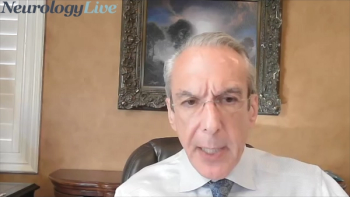
The director of the Chambers-Grundy Center for Transformative Neuroscience at the University of Nevada, Las Vegas discussed how the momentum gained within the Alzheimer community can springboard success going forward. [WATCH TIME: 4 minutes]

The cognitive neurologist at the University of California, San Francisco discussed recently published data on the presence of cognitive post-acute sequelae of COVID-19 and the need to legitimize these conditions.
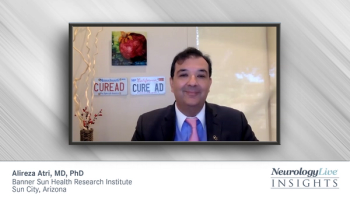
Dr Atri lists the common screening tools used to form an AD diagnosis.

Alireza Atri, MD, PhD, describes the pathophysiology of Alzheimer’s disease (AD).

Approximately 300 patients across 30 clinical centers will be included in the 36-week study evaluating the efficacy and safety of sodium oligomannate (GV-971), a medication currently approved for Alzheimer disease in China.

The senior VP of clinical research and deputy chief clinical officer of the neurology business group at Eisai spoke to the recent first enrollment in the Tau NexGen study of the investigational antimicrotubule binding region tau antibody, E2814.

The cognitive neurologist at the University of California San Francisco provided insight on how she’s taken a cognitive neurology approach to the COVID-19 pandemic, and how her background in HIV influenced her recent research. [WATCH TIME: 5 minutes]

Here's what is coming soon to NeurologyLive®.

The clinical hold comes 2 days after an announcement from Denali Therapeutics detailing a partnership with Takeda Pharmaceutical Company to codevelop and cocommercialize the treatment.

The trial will also include another investiartional Eisai agent, the antiamyloid therapy lecanemab, as the background study drug to evaluate the true effect of E2814 has on patients with dominantly inherited Alzheimer disease.
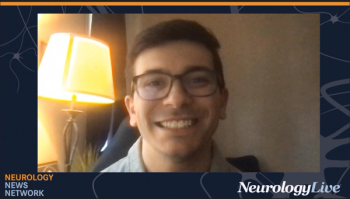
YTX-7739 Trials Suspended, ENSURE-2 Study of IMU-838 Initiated, Behavioral Involvement of FTD in ALS
Neurology News Network for the week ending January 22, 2022. [WATCH TIME: 4 minutes]

Take 5 minutes to catch up on NeurologyLive®'s highlights from the week ending January 21, 2022.

The study of 251 hospitalized patients with COVID-19 found that biomarkers were elevated to levels that were similar to—or even higher than—those observed in patients with Alzheimer disease.

In cases with reported behavioral variant AD, investigators observed AD-like pattern with relative frontal sparing and a relatively more behavioral variant frontotemporal dementia-like pattern with both posterior and anterior involvement.

The professor of neurology at NYU Langone Grossman School of Medicine discussed future research for neurological complications in patients hospitalized with COVID-19 infection. [WATCH TIME: 4 minutes]








